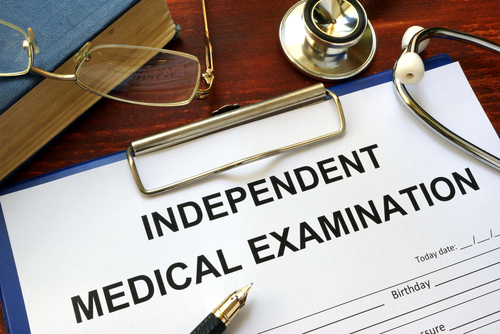 Clinicians and independent medical examiners can work with individuals who are involved in legal cases, but they have very different professional roles. Clinicians and independent medical examiners must be aware of their specific role in a legal case to avoid dual relationships and conflicts of interest.
Clinicians and independent medical examiners can work with individuals who are involved in legal cases, but they have very different professional roles. Clinicians and independent medical examiners must be aware of their specific role in a legal case to avoid dual relationships and conflicts of interest.
What are the roles of clinicians and independent medical examiners?
Clinicians are mental health professionals who provide treatment. Independent Medical Examiners are sometimes known as experts in forensic psychology. They have expertise in the psycho-legal issue relevant to the case.
Clinicians have patients who seek care for a condition. Experts in forensic psychology have clients who are evaluated. Clinicians maintain patient-doctor relationships and therefore have a duty to protect their patients.
Experts in Forensic psychology have limited duty to protect the client being evaluated and therefore are not required to act as advocates. Instead, the expert can conduct objective assessments that may yield conclusions and opinions contrary to the interest of the person being evaluated.
Clinicians are held to stringent rules of patient-doctor confidentiality, which limit how much can be disclosed in the courts and other settings. Experts in forensic psychology can serve as independent expert witnesses who present the results of an examination.
What are the practice standards followed by clinicians and independent medical examiners?
The standards guiding the practice of clinicians and forensic psychology experts are outlined by the American Psychological Association and The American Psychology-Law Society which publish the Ethical Principles of Psychology and the Specialty Guidelines for Forensic Psychology.
These two guidelines explain that “providing forensic and therapeutic psychological services to the same individual or closely related individuals involves multiple relationships that may impair objectivity and/or cause exploitation or other harm. Therefore, when requested or ordered to provide either concurrent or sequential forensic and therapeutic services, forensic practitioners are encouraged to disclose the potential risk and make reasonable efforts to refer the request to another qualified provider.” This means that even when requested or ordered by a court, clinicians and forensic experts must avoid serving as both clinicians and evaluators in the same case.
Both practice guidelines also explain that a multiple relationship occurs when a forensic practitioner is in a professional role with a person and, at the same time or at a subsequent time, is in a different role with the same person.
How do experts in forensic psychology and attorneys work together?
Forensic psychologists and attorneys have a working relationship that must protect the independence of opinion and the objectivity of each professional.
Psychologists must understand rules of admissibility to determine whether the testing and procedures used are valid and reliable enough to stand the scrutiny of the court and other experts. psychologists must understand how to provide testimony as required by the case.
How can I contact an expert in forensic psychology?
Florida Forensic Psychology and Immigration Psychology have experts in Florida, North Carolina South Carolina and other states.
Contact us at:
Info@ImmigrationPsychology.com
877-297-5952
305-456-4147
407-690-7129.
Johanna W. Guerrero, Ph.D.
Licensed Psychologist